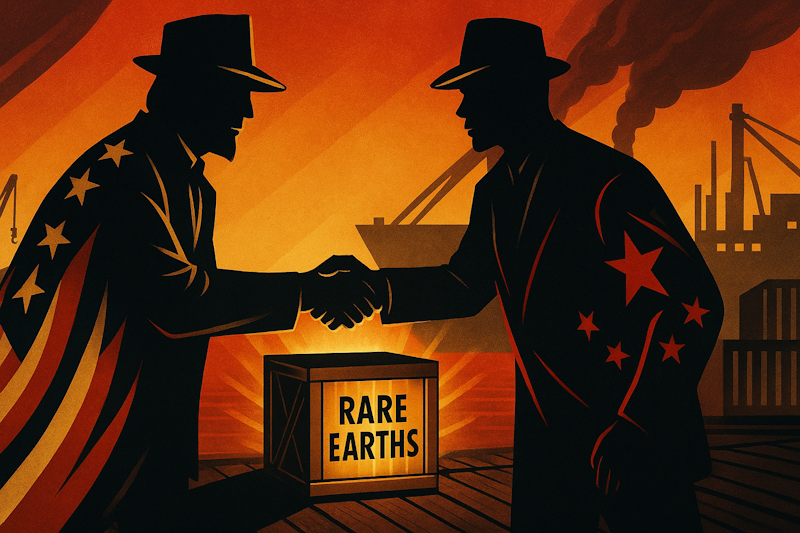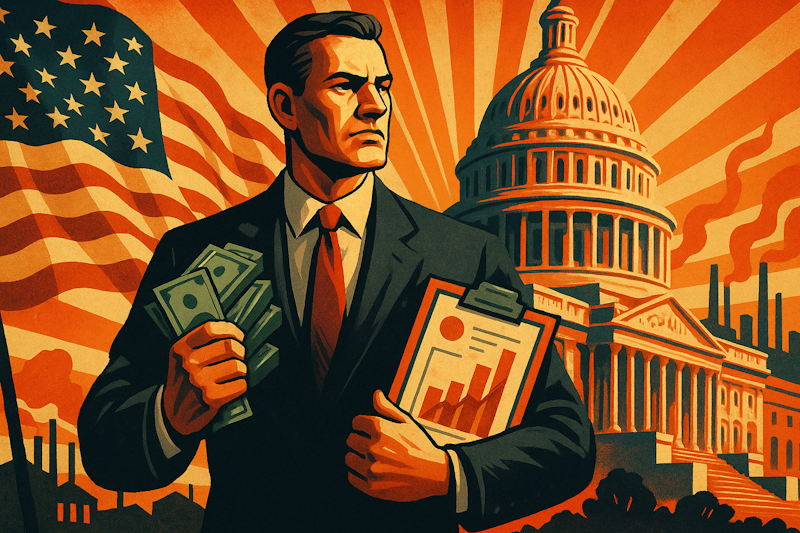Call me a “Western Oppressor,” but I’m a fan of science.
Always have been.
I got my first subscription to what is now Discover magazine in 1978.
I was 7 years old and I specifically remember an edition the following year that described a disease that made the jump from primates to humans that severely compromised the human immune system.
It was HIV. And when AIDS started hitting the news a few years later, I explained it to my parents.
I couldn’t tell you the starting quarterback for the Dallas Cowboys. But I could rattle off nature documentary hosts like Carl Sagan with Cosmos, the prolific David Attenborough, and the admittedly bland and dorky Marty Stouffer that hosted Wild America.
I understood the difference between RNA and DNA in elementary school, tested at a high school level in science by the 4th grade, and defended evolution in front of my church at age 11 (pretty much every week, my parents were told I was going to Hell).
I cherished the understanding science brought.
With a child’s imagination, I could be deep in the jungles of Borneo, marveling at Orangutans one minute and floating in the CO2 rich atmosphere of Venus the next.
But more than the knowledge science wrought, I loved the process of knowing.
The scientific method gave us a way to understand objective reality. Nothing has done more to pull humanity out of ignorance and suffering than systematically observing and questioning our environment to create testable hypotheses.
But science doesn’t explain everything.
It can’t begin to describe consciousness. The only way science can explain free will is to call it an illusion.
And, unfortunately for all of us living in a world run by central banks, science fails completely at determining the right price of money.
A fact that the eggheads at the Federal Reserve of San Francisco recently stumbled across.
The Long Way to the Point
In roughly 35 pages of nearly inscrutable mathematical gobbledygook, plus 15 pages of references, a handful of PhD dorks concluded that maintaining loose monetary policy for the long term leads to financial instability.
Here’s the formal paper, for those of you that enjoy banging your head against a wall.
Keep the price of money cheap for more than 5 years and, low and behold, credit markets overheat with too much easy cash.
Financial crises ultimately follow.
You don’t say.
Their hint was a previous study that suggested “financial crises are the consequence of a central bank that keeps the policy rate too low for too long which in turn fosters an investment boom and eventually a capital overhang.”
Austrian economists like Mises and Hayek have been screaming this from the rooftops for nearly 100 years.
They have the models. They have formulas. All of which is fueled by basic common sense.
However, as I’ve learned, economic PhD programs specifically avoid radical free market theories because following its logic eliminates the chance of receiving grants from the U.S. government or the Federal Reserve.
And as a sign that professional economists never forget where those grants come from, the authors notably eliminated wars from their analysis.
Now, I would argue that crises resulting from prolonged monetary stimulus leads to war as a last result. But I guess accounting for war got too close for comfort given how we’re now, after 13 years of cheap money, openly courting war with Russia, China, and Iran.
In any case, going with their results, if 5 years is long enough to trigger financial crises, imagine what 13 years of super cheap money will deliver?
You may be asking, if 5 years is enough, why haven’t we had this crisis yet? And the answer is that they accelerated the money pump to keep the wheels on the bus.
Covid gave central bankers all the cover they needed to pretend they understood anything. Of the roughly $6 trillion in stimulus ginned up by the Federal Reserve from 2008 through 2021, more than half came in the last 2 years.
But the gig is up. The seeds of instability sewn over those 13 years have long since sprouted, choking what’s left of the real economy and most likely markets (unless the Fed relents at saving its reputation and lets inflation rip).
Not Blinded by Love
My love for science doesn’t blind me to its limits.
It can tell you the atmosphere of a planet orbiting a star 20 lightyears away. But it can’t know what you want right now here on Earth. And it definitely can’t know what you want based on what everyone else wants.
And that’s what drives the price of money.
As Hayek taught us, the one task of economics (that all professional economists ignore) is “to demonstrate to men how little they really know about what they imagine they can design.”
Economics is not science. At best, it’s philosophy. But in the hands of a professional economist it’s a way to get paid, not a way to understand.
And under no circumstances does it provide a toolbox.
While science provides some truly incredible tools, it’s poorly suited for understanding, much less predicting, the human heart.
Though you can’t tell the eggheads at the Fed that.
They don’t understand squat.
Think Free. Be Free.



